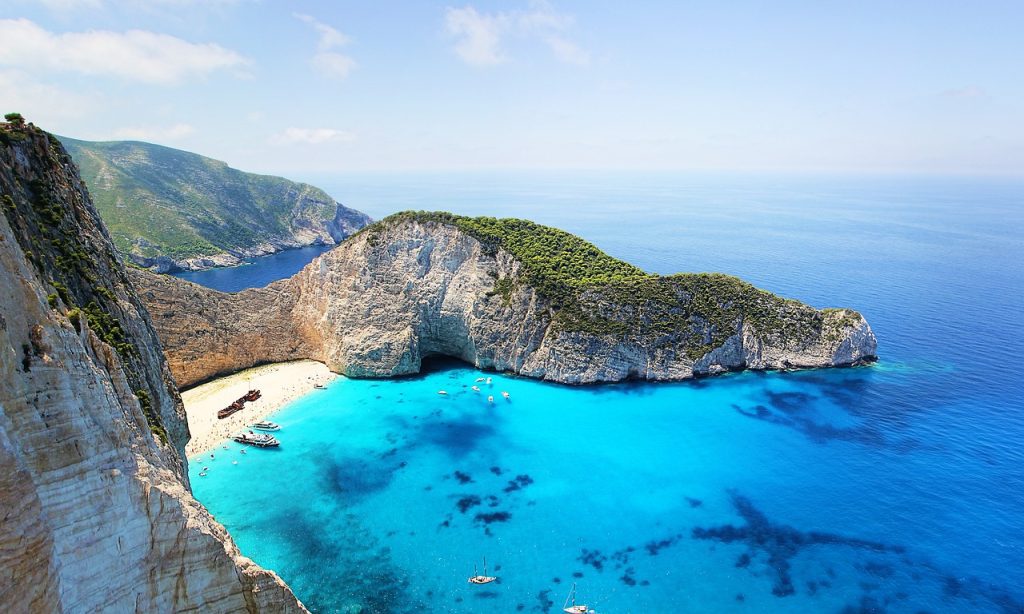Nestled deep within the fabric of ancient Greek mythology lies a concept so profound, so intricately woven into the tapestry of life itself, that its significance continues to reverberate through the ages – Gaia, the primal Mother Earth. In this article, we delve into the depths of the Gaia definition, exploring the rich history, symbolism, and enduring relevance of this primal force that binds us all to the very essence of our existence. Join us on a journey of discovery as we unravel the mysteries surrounding Gaia and her timeless presence in our collective consciousness.
Table of Contents
- – Unveiling the Essence of Gaia: An In-Depth Definition
- – Gaia Concept Explained: Origins and Evolution
- – Gaia in Modern Context: Relevance and Applications
- – Embracing Gaia Philosophy: Practical Tips for Connection
- Q&A
- In Summary


– Unveiling the Essence of Gaia: An In-Depth Definition
In the heart of ancient mythology and modern ecological discourse lies Gaia, a concept that transcends mere definition to embody the interconnectedness of all life on Earth. Gaia, often symbolized as the primordial goddess of the Earth, represents the living, breathing entity that encompasses our planet in its entirety. This profound notion delves deep into the essence of nature, highlighting the intricate balance and harmony that binds every organism, every ecosystem, and every element together in a delicate dance of existence.
Exploring the essence of Gaia unveils a tapestry of relationships, from the microscopic interactions between soil bacteria and plant roots to the grand symphony of climate systems shaping our global environment. Gaia encapsulates the reciprocal exchange of energy and resources that sustains life, emphasizing the mutual dependence and cyclical nature of all living beings. As we contemplate the magnificence of Gaia, we are reminded of our role as stewards of this interconnected web, entrusted with the responsibility to nurture and preserve the intricate balance that sustains life on Earth in all its wondrous diversity.
– Gaia Concept Explained: Origins and Evolution
In the realm of environmental philosophy and science, the Gaia concept is a fascinating and intricate idea that delves into the interconnectedness between Earth and its living organisms. Gaia theory proposes that the Earth is a self-regulating system, akin to a single living organism, named after the Greek goddess of the Earth. This concept suggests that the planet maintains conditions suitable for life through feedback loops and interactions among its various components.
As the Gaia concept evolved over time, it sparked debates and discussions about the dynamics of the Earth’s biosphere and the extent to which life influences its own environment. From the early formulations by James Lovelock and Lynn Margulis to the ongoing explorations by contemporary researchers, the Gaia hypothesis continues to inspire new perspectives on planetary systems and ecological sustainability. By recognizing Earth as a complex, interconnected entity, the Gaia concept invites us to reflect on our relationship with the environment and the intricate web of life around us.


– Gaia in Modern Context: Relevance and Applications
In the modern context, the concept of Gaia continues to hold significant relevance across various fields ranging from environmental science to philosophy. Its applications extend beyond theoretical frameworks into practical solutions for addressing ecological imbalances and fostering a deeper understanding of interconnected ecosystems.
Key Points:
- Highlighting the interdependence of all living organisms
- Promoting sustainable practices and biodiversity conservation
- Encouraging holistic approaches to ecosystem management
By embracing the principles of Gaia, individuals and communities can cultivate a profound sense of stewardship towards the planet. This holistic perspective inspires innovative problem-solving strategies that prioritize harmony between human activities and the natural world, ultimately leading towards a more sustainable and resilient future.
| Benefits of Gaia Concept | Examples |
|---|---|
| Enhanced environmental awareness | Advocacy campaigns for wildlife conservation |
| Promotion of eco-friendly practices | Community-led recycling initiatives |


– Embracing Gaia Philosophy: Practical Tips for Connection
Connecting with Gaia philosophy can be a transformative journey that deepens our relationship with the natural world around us. By embracing the principles of Gaia, we acknowledge the interconnectedness of all living beings and the planet itself. To foster this connection, consider incorporating these practical tips into your daily life:
- Commune with Nature: Spend time outdoors, whether it’s a walk in the park, a hike in the mountains, or simply tending to a garden.
- Practice Mindfulness: Be present in the moment and observe the beauty and rhythms of the earth.
- Cultivate Gratitude: Appreciate the gifts that nature provides and express gratitude for the abundance around you.
Furthermore, nurturing a connection with Gaia involves living in harmony with the environment and making conscious choices that support sustainability. Consider adopting eco-friendly habits such as:
- Reduce, Reuse, Recycle: Minimize waste by practicing the three Rs in your daily life.
- Support Local and Organic: Choose locally sourced and organic foods to reduce your carbon footprint and support sustainable farming practices.
- Embrace Renewable Energy: Explore options like solar power or wind energy for your home to reduce reliance on non-renewable resources.
Q&A
Q&A: Unveiling the Meaning of Gaia
Q: What is the Gaia definition everyone is talking about?
A: Gaia, derived from Greek mythology, represents the Earth as a living entity. It embodies the interconnectedness of all living beings and the planet itself, fostering a sense of harmony and balance.
Q: How does the concept of Gaia affect our modern understanding of the environment?
A: Understanding Gaia challenges us to view the Earth not as a mere collection of resources but as a complex, self-regulating system. It encourages us to consider the intricate relationships between humanity, nature, and the cosmos.
Q: Why is the Gaia definition relevant today?
A: In an era marked by environmental challenges, the Gaia concept reminds us of the importance of respecting and nurturing the Earth. By embracing this holistic worldview, we can strive towards sustainability and a more harmonious existence with our planet.
Q: How can we apply the principles of Gaia in our daily lives?
A: Embracing the Gaia definition involves adopting practices that promote ecological balance and interconnectedness. By respecting nature, supporting conservation efforts, and making sustainable choices, we can embody the spirit of Gaia in our actions.
Q: What does the future hold for Gaia and its impact on society?
A: As awareness of environmental issues grows, the Gaia concept is likely to gain prominence as a guiding principle for sustainable living. By incorporating Gaia’s teachings into policies and practices, we can work towards a more resilient and harmonious future for all beings on Earth.
In Summary
As we conclude our exploration into the captivating concept of Gaia, we invite you to embrace the interconnectedness between Earth and all living beings. The Gaia hypothesis offers a profound perspective on the symbiotic relationship we share with our planet, highlighting the delicate balance that sustains life. May this newfound understanding inspire you to cherish and protect our precious home, nurturing a harmonious coexistence with the magnificent tapestry of nature. Let us continue to ponder Gaia’s mysteries, reflect on our roles as stewards of the Earth, and strive to co-create a more sustainable and flourishing world for generations to come. Thank you for joining us on this enlightening journey through the essence of Gaia.




0 Comments